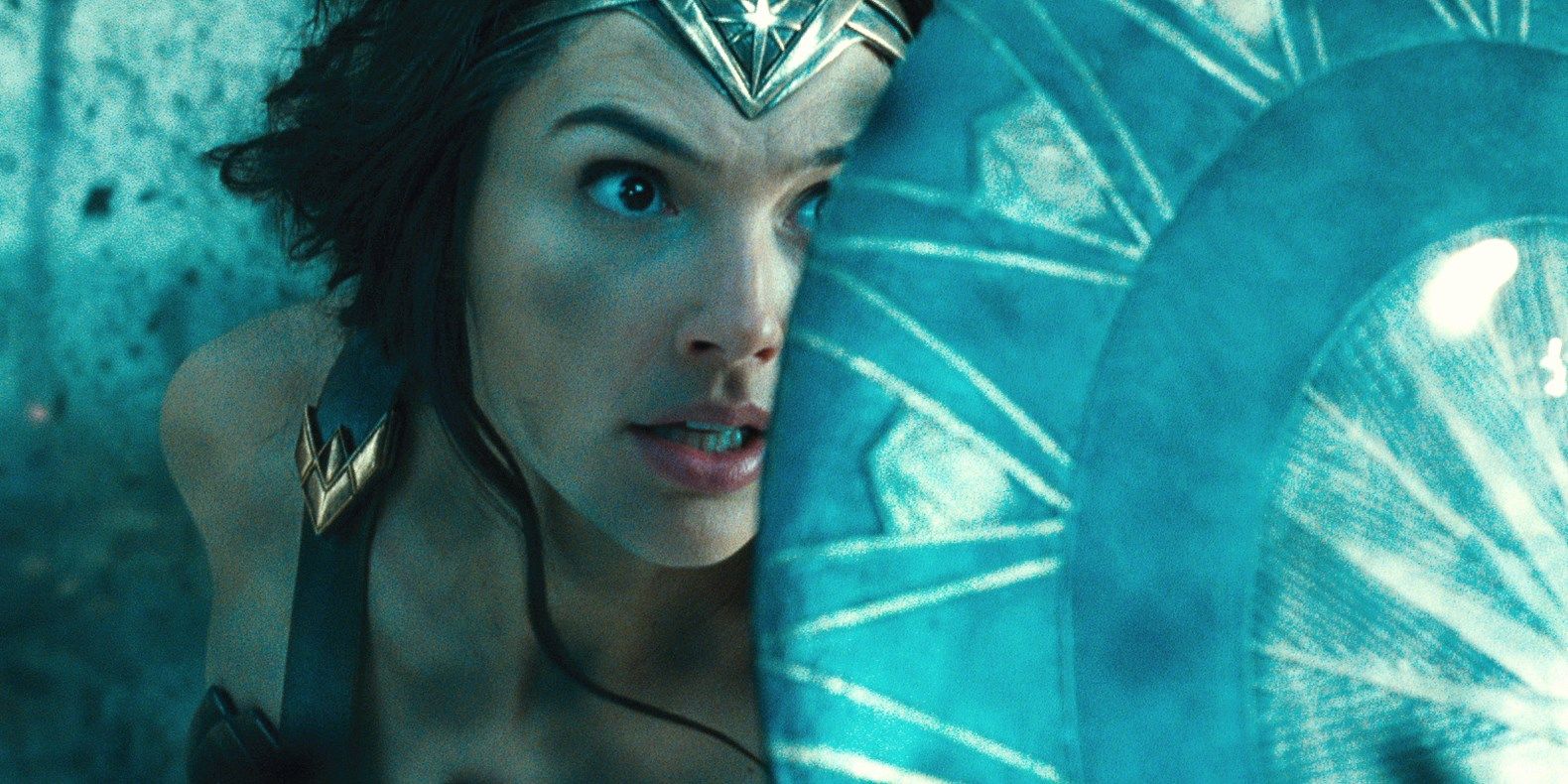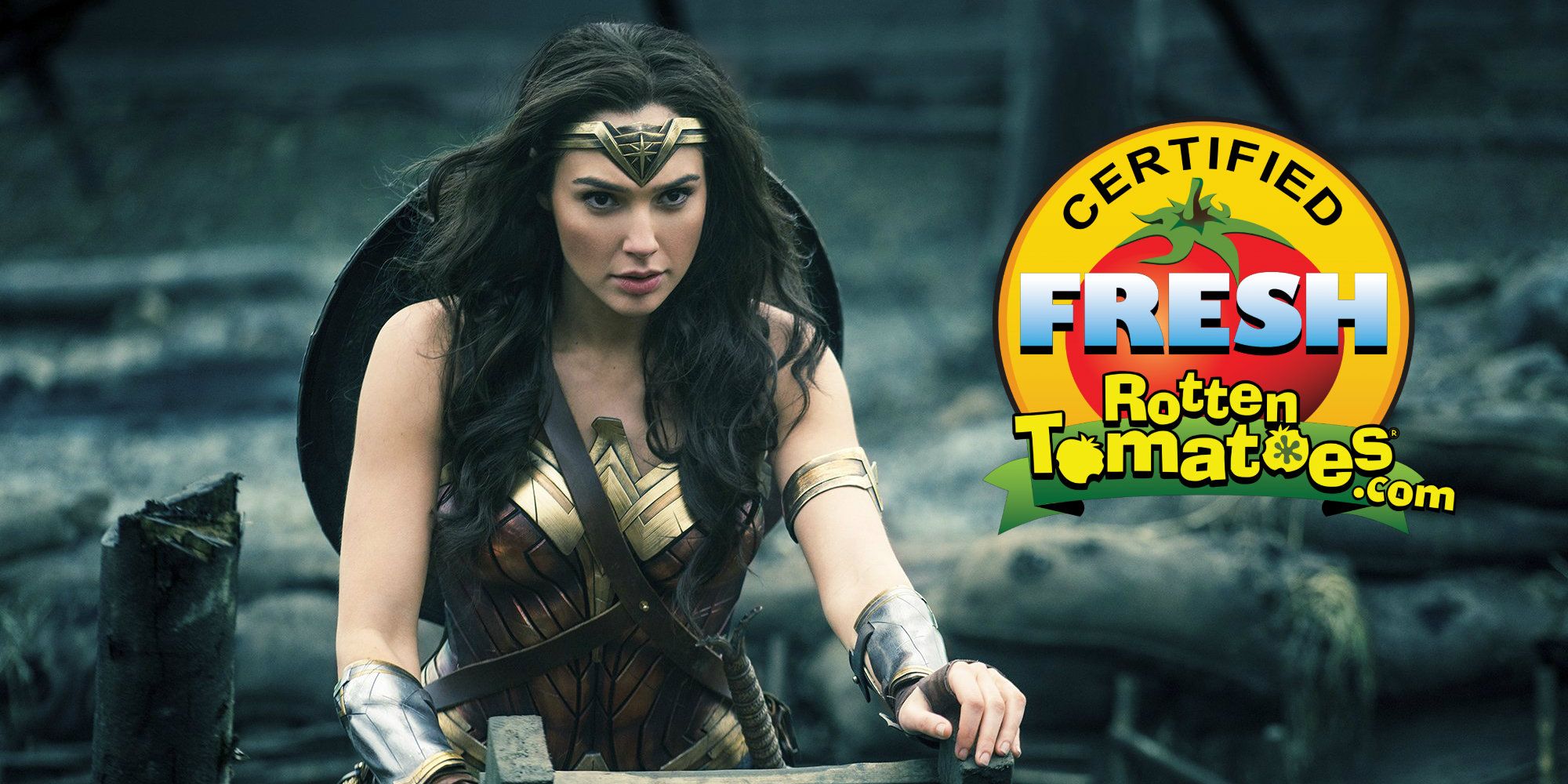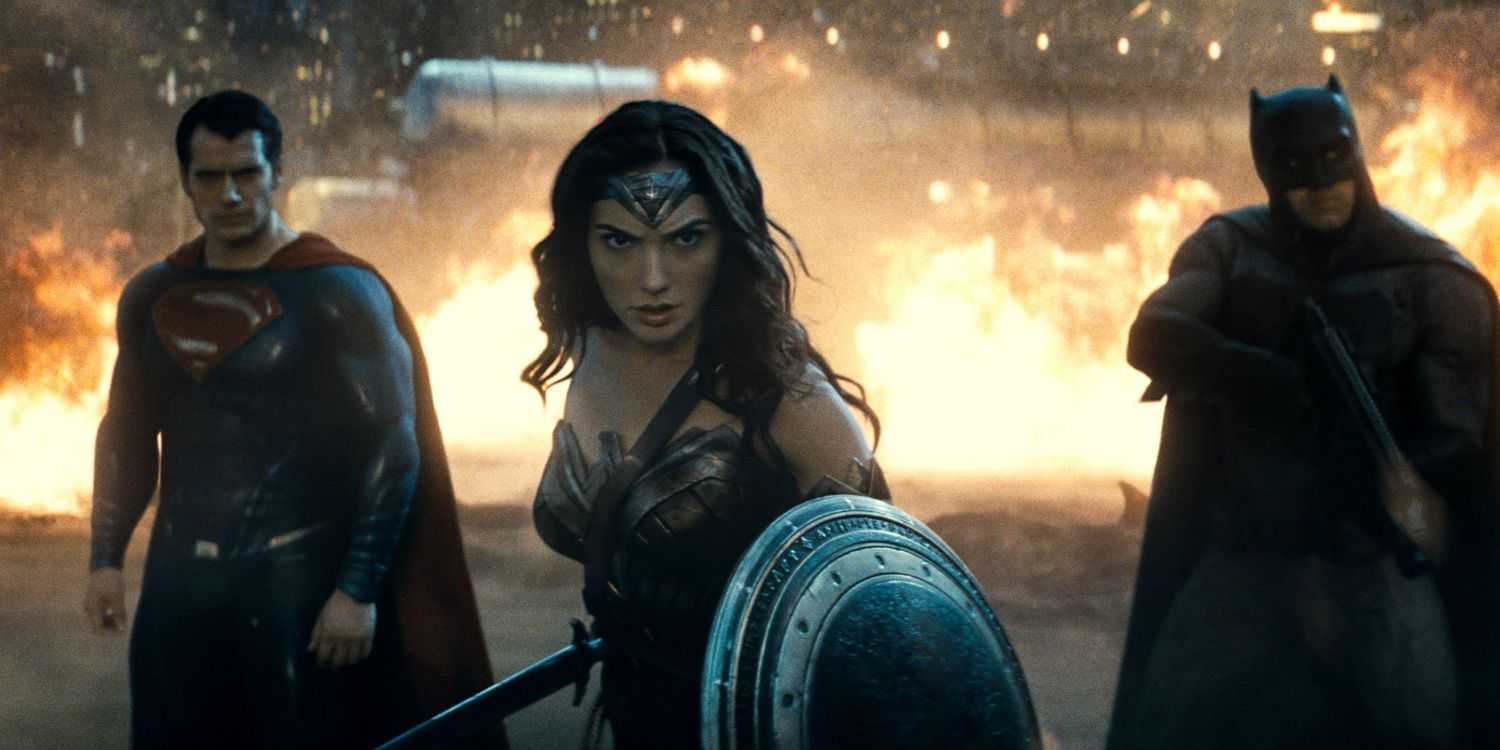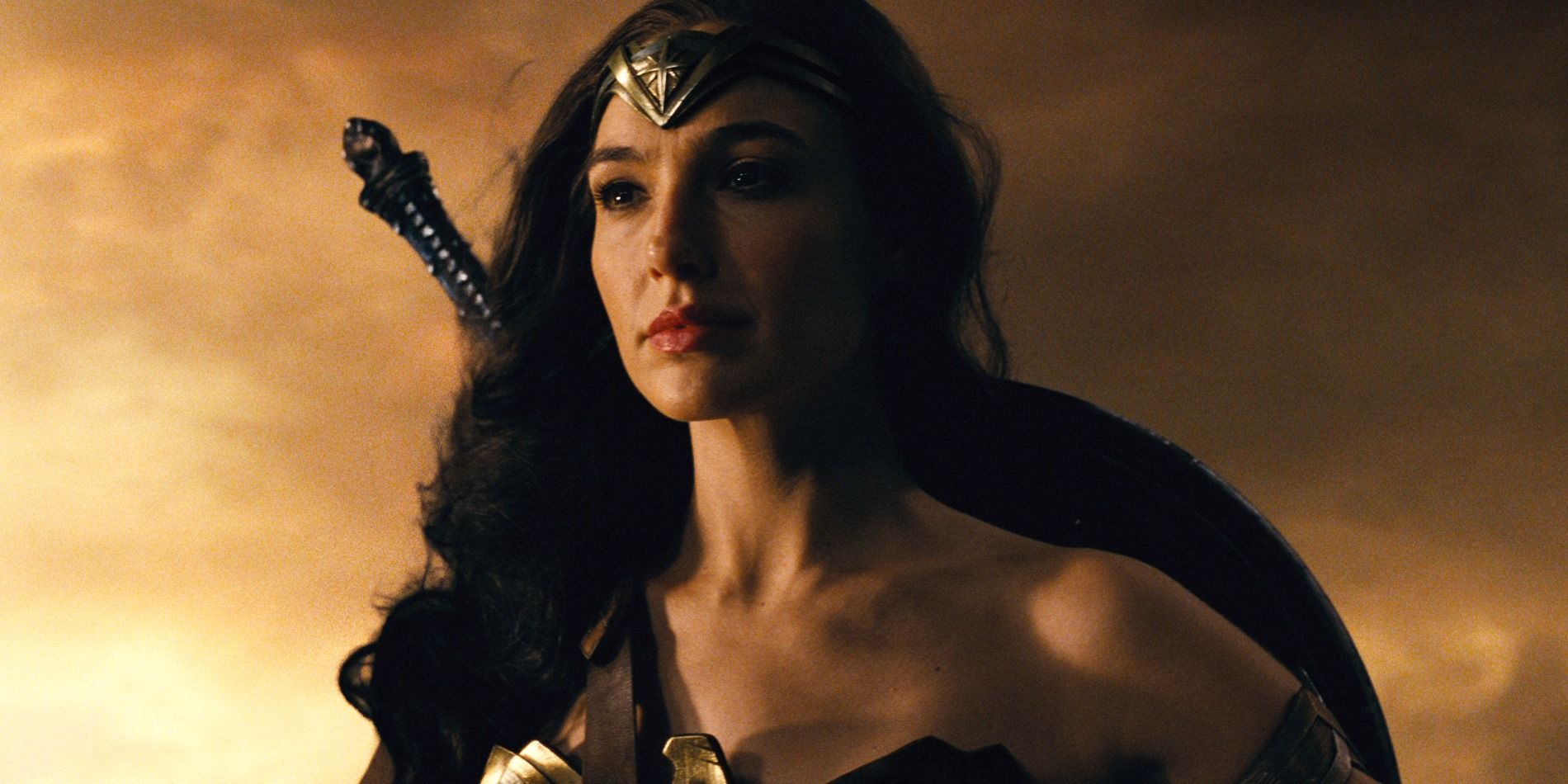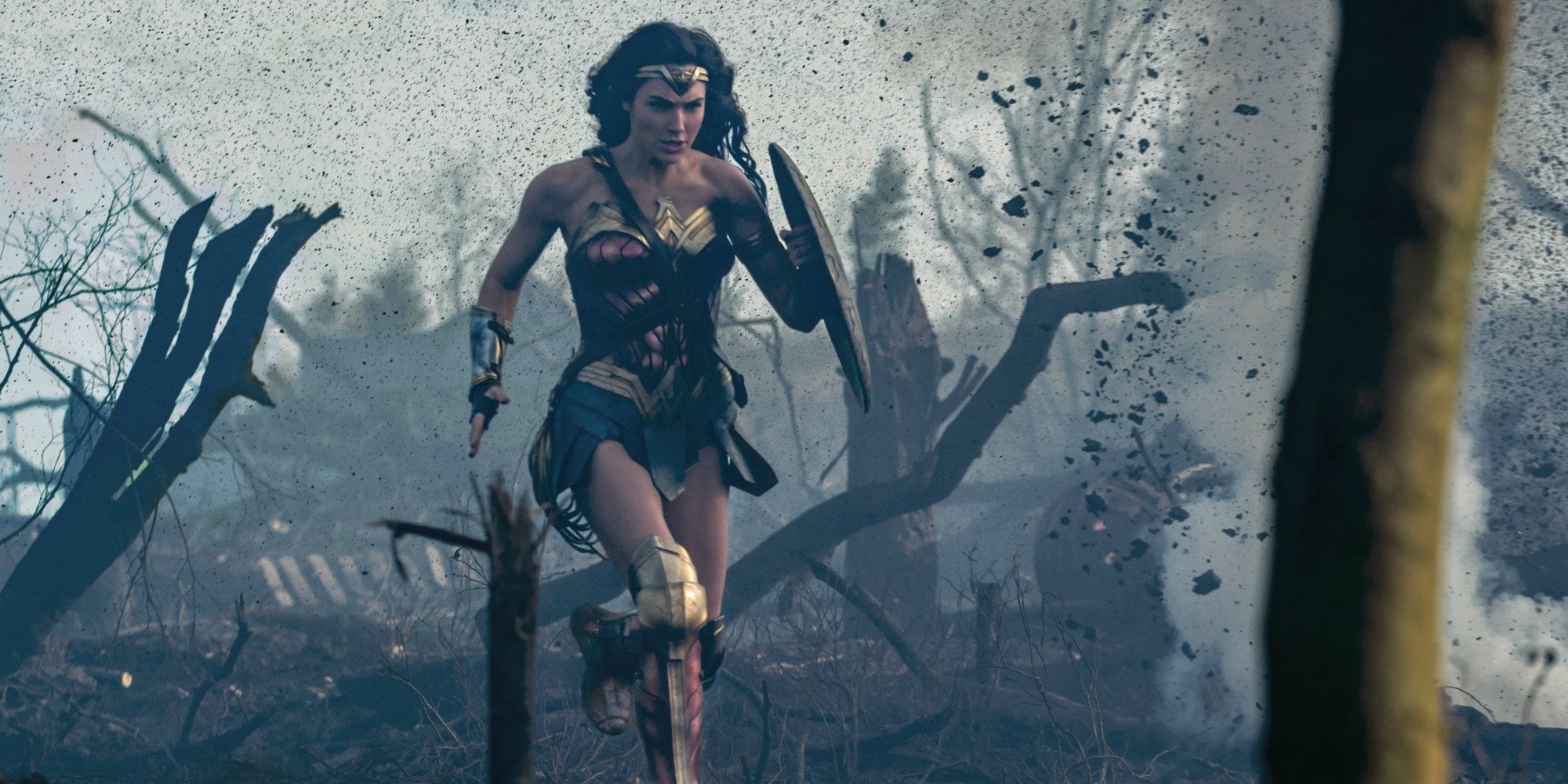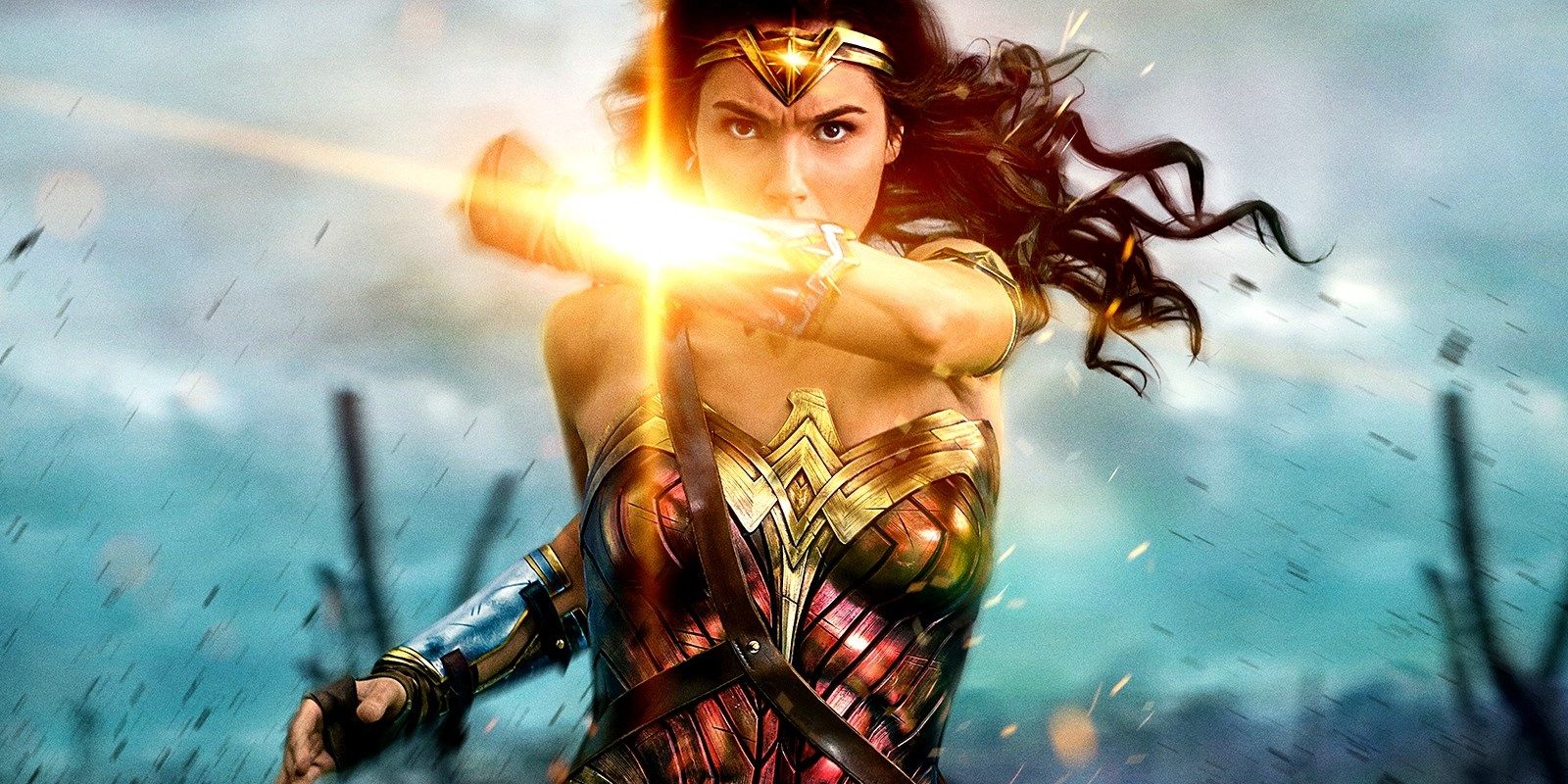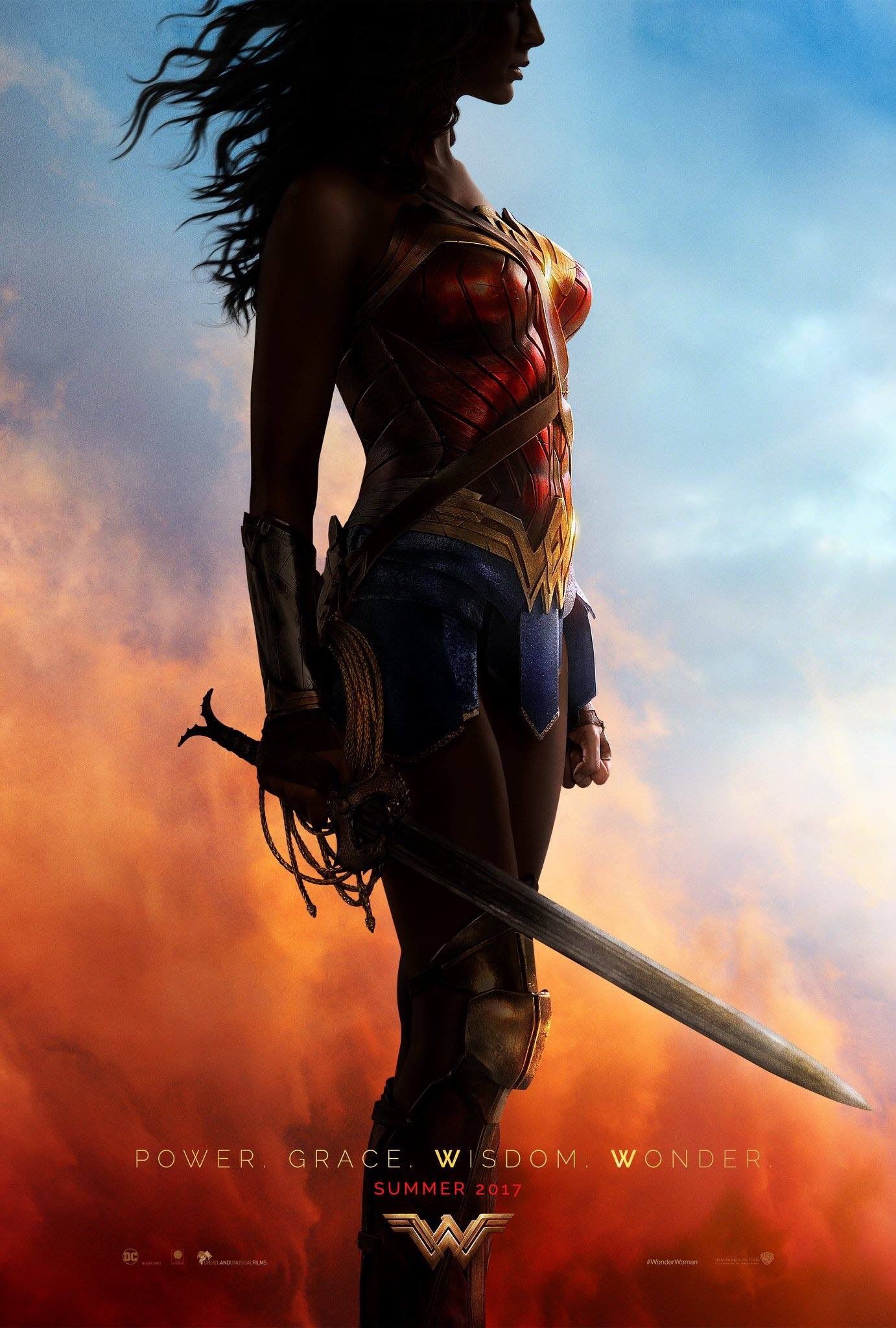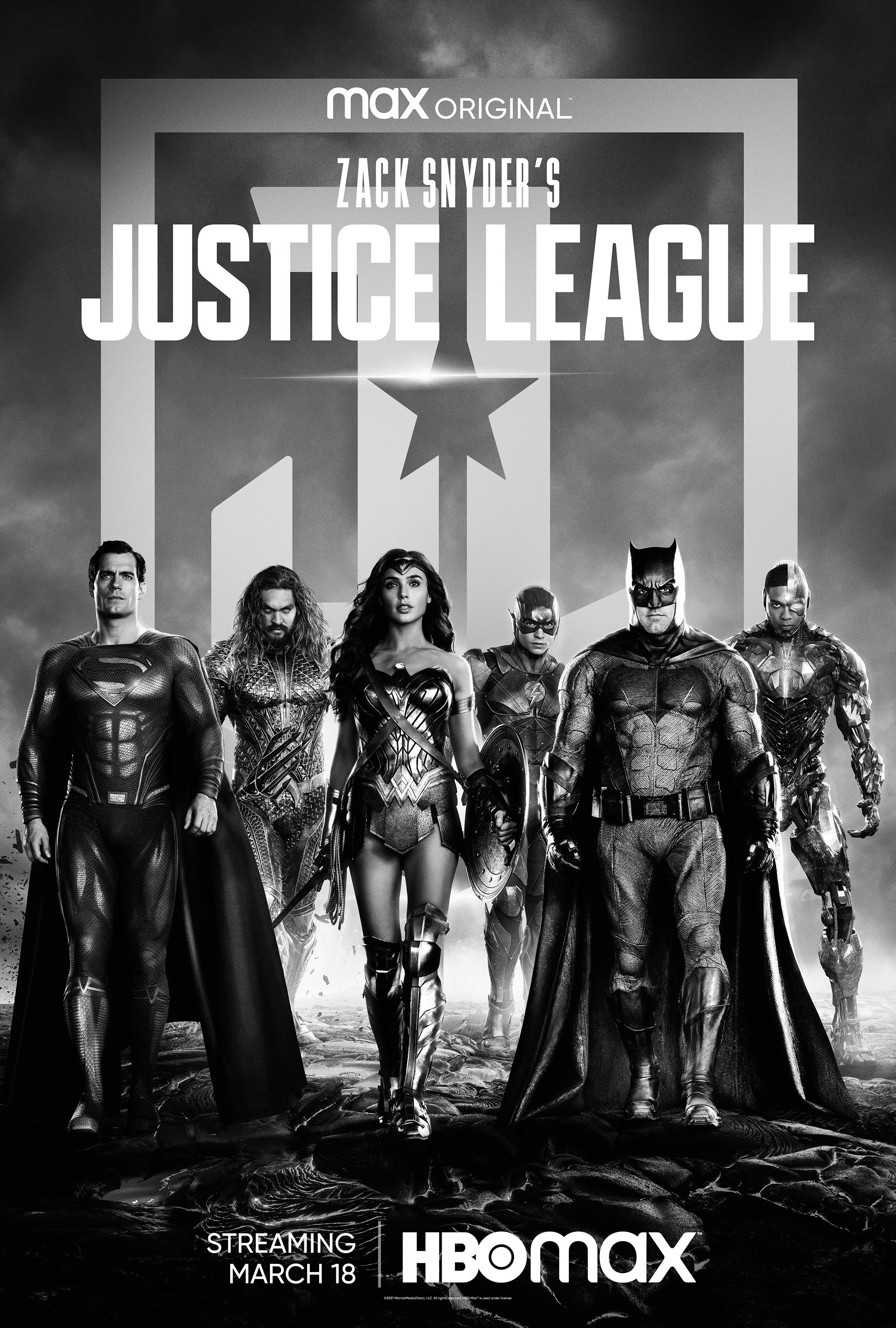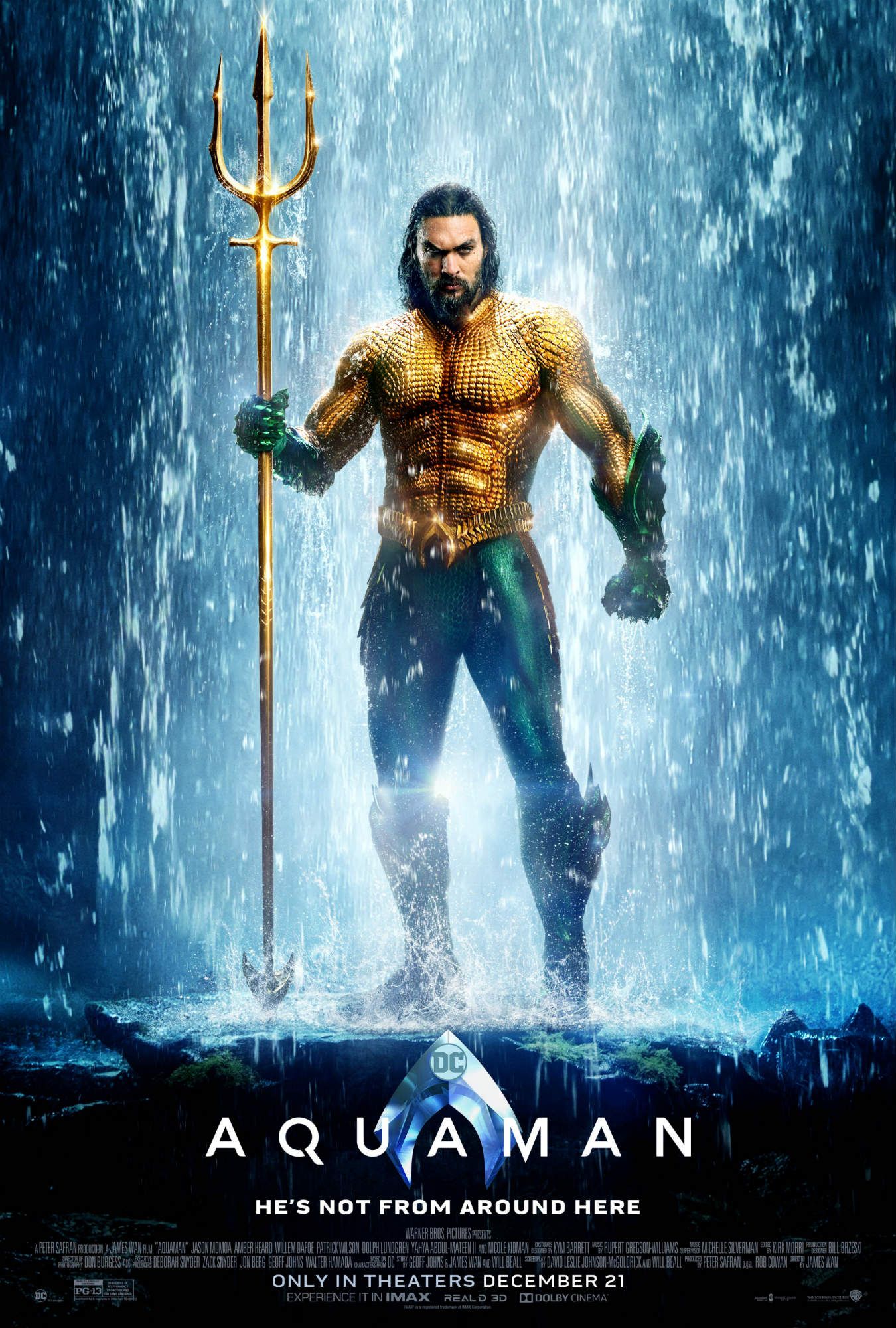In the wake of rave reviews and a record-breaking opening, is Wonder Woman already risking becoming overrated - or, rather, is it being over hyped? The hype is definitely real - audience positivity mostly matches the critics and unlike many big blockbusters with stacked pre-release excitement, the film saw little in way of box office drop across its first weekend Friday-to-Sunday - but as is wont from any qualified hit, though, we're quickly getting into hyperbole.
There have been claims of "perfection", multiple comparisons to The Dark Knight, and recently the movie has had its tiara thrown into the ring as the requisite big summer movie deemed worthy of a stab at Best Picture. And, yes, Wonder Woman is a good film. It's a strong origin story that understands its hero on both a personality and ethos level, puts her in a fitting, equally nuanced backdrop and realizes her fight against Germans/Ares/War/the patriarchy with some sublimely directed action that actually justifies its copious slow-motion beats by presenting them as from the protagonist's perspective. It's a very hard film to dislike, in fact (which will play a part later), but when the phrase "best ever" is getting thrown around for what is essentially the DCEU's Iron Man - a competent, exciting experience overlayed with future promise - it's hard to not use the "O" word.
But, really, any claims of being overrated seem a bit off-point. What we're dealing with more is less an overestimation of the film itself than a misreading of the movement around it. Wonder Woman is, put simply, an overhyped picture.
Are The Reviews As Positive As They Seem?
A major power behind the hype is the reviews. After positive word from early screenings, the social media embargo was pushed forward, giving a good few weeks for the notion of Wonder Woman as a great movie to sink in before the full influx of write-ups. As much as there's been an anti-critic bent around certain tentpoles, especially those from DC, there's no denying the impact reviews have. Positivity begets positivity, and so overwhelming assessments - especially from the vocal and increasingly more important online contingent (as opposed to Friday print journalists) - are going to massively influence the discussion. But that message can be distorted.
The best port of call to explain this is Rotten Tomatoes. We've already recently discussed the positives and negatives of the review aggregator in terms of measuring a movie's objective quality (a notion that is in and of itself ridiculous), but there's some very interesting numbers in regards to Wonder Woman. While at the time of writing the film sits at 93% approval with all critics, the actual mean score is 7.6/10, a good 20% lower. This disparity is a result of the site's binary scoring system, but is still inflated compared to the likes of The Dark Knight (94% and 8.6/10) and The Avengers (92% and 8/10). Being hard to dislike means it does better on that system. Things are more pronounced with Metacritic, an altogether better composite scoring site that uses fewer but higher choice data points and averages out scores (but is mostly ignored due to it not being as handy to defend a film you like); there Wonder Woman has 76% approval.
Going beyond numbers (because as easy as it is to rely on a simple score and box color, that doesn't truly convey opinion) and reading the reviews, you thus discover assessments of the film that feels much more measured; there's a lot of praise for Gal Gadot's full embodiment of Diana Prince and Patty Jenkins' handling of many spinning plates (this is an origin story, period piece, war parable and shared universe prequel) but also an admittance that the third act loses a step, fumbling thematic culmination and being mostly a CGI-enabled beat-em-up.
Suddenly, everything makes a lot more sense. When viewed on this level, Wonder Woman is being regarded as a more modest success as a film, bolstered by metrics that reward goodness over greatness. But why then did the extreme wave of hype manage to dominate, and why were those universally understood criticisms roundly accepted or ignored? To answer that, we need to go deeper.
Next Page: [valnet-url-page page=2 paginated=0 text='Wonder%20Woman%20-%20The%20DCEU%20Savior']
Wonder Woman's Part in The DCEU Narrative
Go back a year and the idea of the wider film culture being so swept along by Wonder Woman seemed unlikely. The character herself is, without any real comparison, the most famous female superhero of all time, so a big screen outing was always going to be a major event, but the one we were getting was going to be realized as a part of the thus far contreversial DCEU.
The previous films - Man of Steel, Batman v Superman: Dawn of Justice and Suicide Squad - were each seemingly more contentious than their predecessor and solid box office numbers only served to prove a fan-critic divide. Originally, Suicide Squad had been positioned as the chance to right the ship - three strikes and all that. The trailers promised something tonally different and the villains-done-good set-up gave the opportunity for something simple, rather than Snyder's far-reaching Randian musings. Of course, that film stumbled massively under reshoots, multiple edits and more, earning as violent a reputation as Dawn of Justice, only lacking the same fervent fan defense.
Hopes then went to Wonder Woman and, after initial mixed word that it was another film marred with creative troubles, the general mood shifted to something positive. Whereas Suicide Squad was a cousin to Snyder's Superman duology, with David Ayer having a similar macho approach and being dark for darkness' sake, this entry looked different. It was a prequel, so even though it shared a character with Dawn of Justice it was a few degrees removed (besides, Diana was actually an oft-cited highlight of Batman v Superman anyway). Most importantly, it had Patty Jenkins, who, from her work on Monster, had shown a singular vision and after leaving several projects (including the similarly angled Thor: The Dark World) would clearly settle for nothing less than creative freedom.
People became open to Wonder Woman in a way they hadn't been with a DCEU film since Man of Steel, at which point everything looked bright and hopeful, which gave a Wonder Woman a big pre-release advantage; whereas the critic and audience knives were sharpened for the two 2016 releases, the majority was ready to welcome 2017's summer tentpole as the franchise's savior. And, indeed, many sites chose to run with "the DCEU's best film" when publishing their reviews, which is a pretty impressive title until you consider that the same outlets had declared the previous two attempts as some of the worst of the genre; a totally average film could have still earned those write-ups per their existing scoring. Within the narrative, Wonder Woman only had to be just adequate enough to be praised as good - and good would naturally become great.
Of course, Wonder Woman is more than just good, but the power of comparison can't be ignored in this overhype, seeing a lower bar celebrated. A similar thing happened with Star Wars: The Force Awakens, where the return of the series after a decade away led to a swathe of five-star reviews that missed certain problems like the strange pacing issues and repeated plot, in part because in the build up it had been established as having to be better than the maligned prequels. This takes the positivity spiral only further upwards; it's not just a good film, it's a better film.
Better than what, though? At this point it's worth citing the distinction between the DCEU and DC, seeing as the four-year-old former is now deemed to represent the whole company's film output, which was for a long time viewed superior to Marvel's. This change of view is likely where the amplified comparisons to The Dark Knight come in. Christopher Nolan's seminal superhero-cum-crime epic was at the time called the Citizen Kane of spandex, but in the nine years since release has become its own high watermark. Every great comic book film is "the best since The Dark Knight" or otherwise compared, and it's now reached the point where the statement is almost as redundant. Already this year we've seen Logan get such claims for its culmination of an aging Wolverine's journey that felt more sci-fi western than it did superhero, and now Wonder Woman joins the ranks; the statement is used to say "this is a good one" rather than being of tangible worth. After all, let's not forget that The Dark Knight wasn't just different. Nolan pulled blockbuster cinema into the self-aware post-9/11 world and introduced a moodier film language that persists to this day; it was a technical ground-breaker, so while comparisons are flavorful and get clicks, they can usually miss the full scope.
And speaking of the full scope, we'd be remiss to not take into account what Wonder Woman fully represents.
Next Page: [valnet-url-page page=3 paginated=0 text='What%20Wonder%20Woman%20Represents%20For%20Cinema']
What Wonder Woman Represents
How Wonder Woman will change (and hopefully lead) the DCEU is definitely an important part of the story, especially when it comes to social chatter, although DC bias and its ephemera are secondary to what it means in the wider superhero genre, blockbuster cinema, and indeed film as a whole.
It barely needs stating that female-led movies are rare, more so if they're action orientated, and when you get to major tentpoles damn near impossible to get made. When we restrict it further to superheroes, the dominant genre of the day, it gets even worse. There are only half a dozen proper examples, most recently Elektra, twelve years ago, and the consistent failures have led to a long-standing reluctance for more; The Wasp takes second fiddle to Ant-Man in their shared sequel and Captain Marvel will be the MCU's 21st film.
Diana Prince climbing up into No Man's Land to take on German gunfire thus isn't just a heroic companion to Superman taking flight, "I'm Batman," Spider-Man learning to shoot his webs, or Tony Stark building an Iron Man suit in a cave with a box of scraps, but a representation of her taking on the unfounded preconception that her movie can't exist. There's not really a previous reference point for this. It's a first, ergo breaking new ground. This is a big deal for all, but especially young girls - the power of having a character on screen who they truly recognize as themselves cannot be understated.
What's so impressive, though, is that Wonder Woman is a success because of its lead, not in spite of it. If you look at previous women-led blockbusters, they're often stealth cases; in Alien, Terminator, and more recently The Force Awakens, the fact the protagonist is a girl is an emergent surprise hidden in the advertising. Here the marketing was criticized for its non-traditional approach, including just focusing on Diana and Gal Gadot over everything else, and the movie is so imbued with the character's unconditional heroism and hope that it proves the appeal.
It's, even more, a tangible success in an industry sense. Wonder Woman marks a litany of firsts for a female director: first time with a budget over $100 million; first domestic opening weekend over $100 million; and it's surely on the way to the biggest gross of all time. That it's a film that's female-led yet has cross-gender appeal (even if the usually dominant 16-24 male demographic was lower than with other genre entries) shatters a lot of preconceptions and will surely alter how projects are greenlit in the future. In this regard, the hype is totally deserved; Wonder Woman is a game-changer for female representation in blockbuster cinema both in front and behind the camera, and in decades to come will be regarded as a pivotal turning point.
All that said, within that there's a mixing and perhaps misunderstanding of film and context; a presumption of greatness not of the film itself but what it represents. It transcends the genre more by existence, not action - it's mainly following the tried-and-tested origin story formula - which is in no way a criticism, that formula works for a reason, but the distinction still needs making.
There's an element of head over heart here, which is unfortunate but necessary. Wonder Woman is more than just a must-see success - unlike, say, Avatar, a widely cited overrated "event", its impact is tangible and purpose clear - but the danger is still that as we work our way through Summer 2017 (which so far has been a mixed bag) it will become regarded as overrated for the film simply not being as artistically far-reaching as its franchise and gender implications. It is, ultimately, just a film.
The event will pass and in years to come Wonder Woman will, as an experience, have to stand on its own away from firsts and restarts. What it will do in that time is important, but let's make sure we don't lose what it actually is in the hype.

